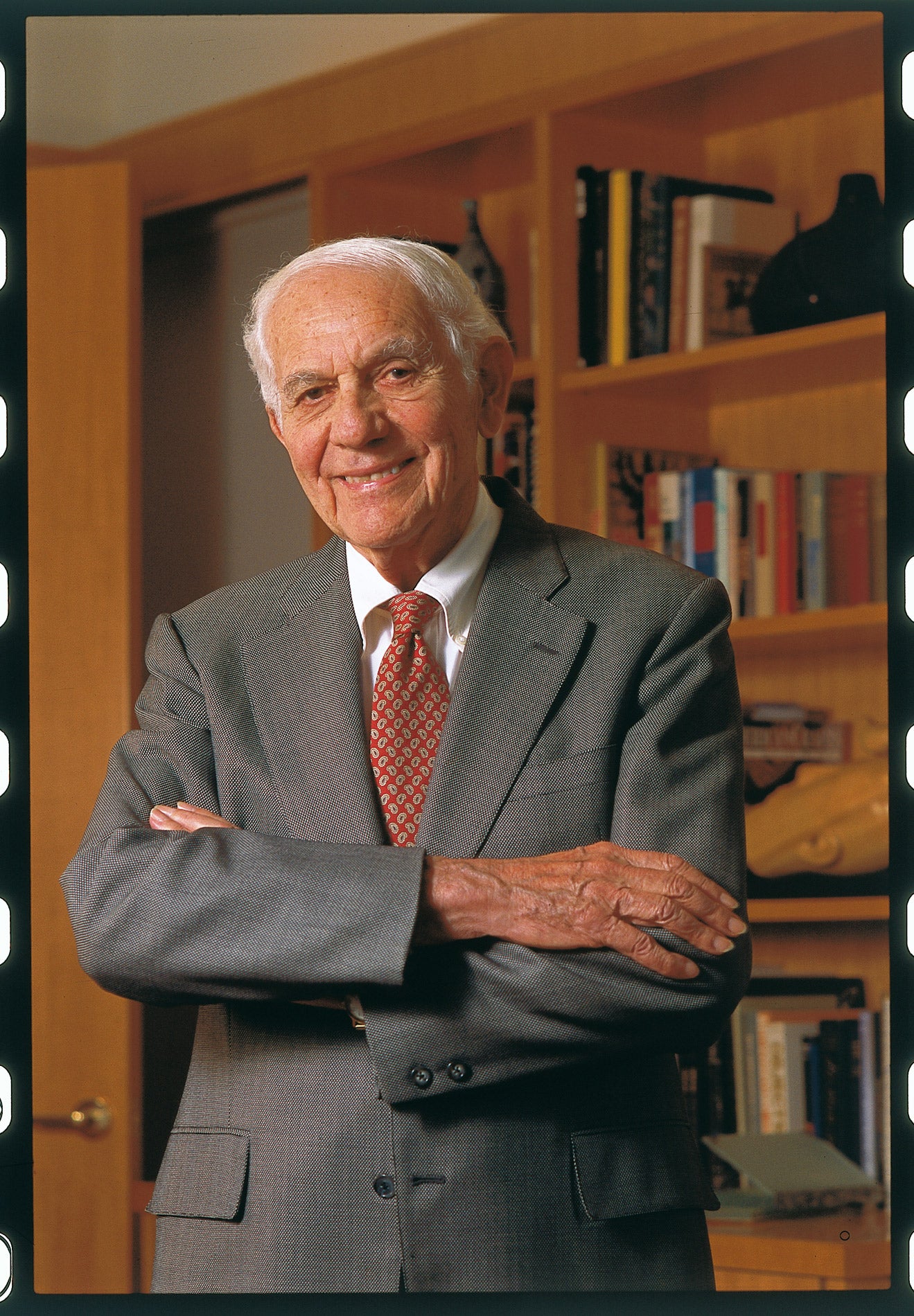Bernard Koteen ’40 is a partner in the Washington, D.C., office of Holland & Knight. A telecommunications expert and member of the Federal Communications Bar Association, Koteen is also a strong supporter of public interest law. The HLS Office of Public Interest Advising was recently renamed the Bernard Koteen Office of Public Interest Advising to honor his most recent gift to the law school.
You’ve been practicing law for more than 50 years. What do you think about the state of the profession today?
For many years I’ve had a deep concern about the growing pressure upon lawyers to be more business-minded. That’s not incompatible with serving the public interest, but it has meant that in some instances the pressures for more billable hours, the pressures for bringing in more clients, may be a distraction from serving the public interest–either within the practice of law or by being involved with outside causes.
You know, years ago, Dean Roscoe Pound said the practice of law should be performed “in the spirit of public service–no less a public service because it may incidentally be a means of livelihood.”
Where does your commitment to public interest law come from?
I think it stems from the fact that I grew up, and went to law school, during the Great Depression. There was great emphasis by the Roosevelt administration on serving the public, so it was natural for many of my classmates and me to have that concern and begin our legal careers in public service.
After four years in the Navy, I went to work at the Federal Communications Commission. I shortly became chief of the section, writing opinions deciding which of the competing applicants for television and radio channels would provide the best service to the public–based upon criteria I helped develop.
Recently, former FCC Chairman James Quello wrote that I had always shown great zeal in promoting both my clients’ interest and the public interest, and that after discussions with me, he used his position as a bully pulpit to urge broadcasters to act in a responsible, professional fashion, consistent with public interest standards.
You recently made a significant gift to support public interest at the law school. What led you to do this?
I’ve always been interested in seeing the law school groom lawyers for a fuller and richer place in life. In 1990, I chaired my 50th reunion and our class more than doubled what was then the 50th reunion giving record, and I urged that a substantial part of those gifts be used for the LIPP [Low Income Protection Plan] program. We believed that those who had preceded us had made it possible for us to go to the law school and we had both an obligation and an opportunity to help those who followed us.
Several months ago I had lunch with Dean [Robert] Clark in Washington, and I knew he was interested in having me consider making a very substantial gift to the school. So I spoke to my wife about it ahead of time, and we both agreed that I should go ahead and do it. And so I bit the bullet and came up with what, for me, was a very significant contribution to support the Office of Public Interest Advising.
You play lots of tennis and have been described as a jock.
Oh, I throw some weights around in the morning and do 200 sit-ups almost every morning before heading to the office. And if I don’t get the opportunity to do some walking during the day, I usually do a mile on a treadmill.
Where do you get your energy?
In this world you can be smart or you can be lucky, and lucky is better. My genes were my good luck.
